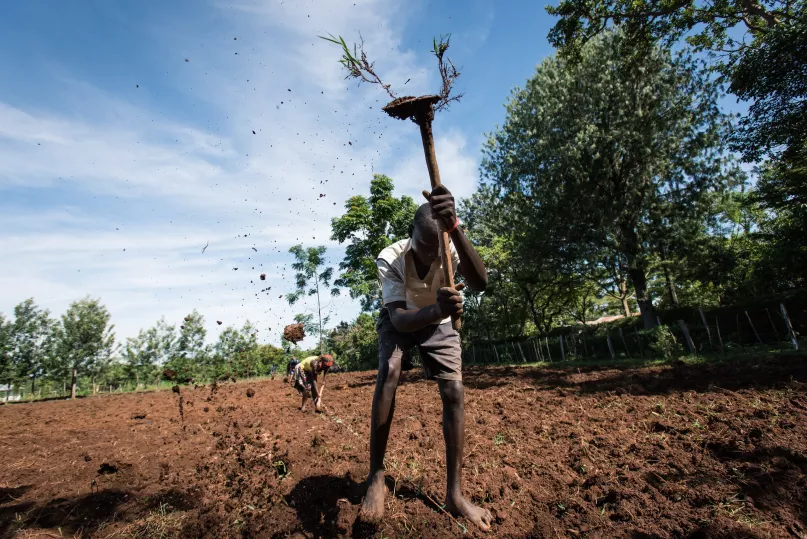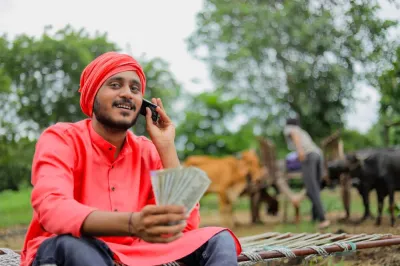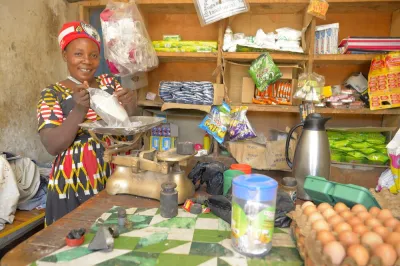Where Is the COVID-19 Stimulus for the Smallholders Who Feed the World?

Kenyan farmer Rebecca Chituyi has a lot of worries about the coronavirus these days, given that many of the markets around where she lives have been closed and farmers are struggling to sell their vegetables. As she bluntly points out, “We farmers are the ones who are producing food for the country and if this disease affects farmers then it means (Kenya) will have an issue with food.”
Rebecca is absolutely right: experts at the WFP, FAO, and IFPRI all agree that the COVID-19 health crisis could soon become a food crisis. Unfortunately, little COVID-19 stimulus relief is reaching farmers like Rebecca, or the 70 percent of the world’s poor who are smallholder farmers like her, and who produce a large amount of the food supply in their home countries.
Smallholders must be critical partners in preventing this looming food crisis. At One Acre Fund alone, we estimate that the 1 million farmers we serve produce enough food for 15 million people annually.
In the coming growing season, smallholders need to gain quick access to the financing they need to purchase sufficient seed and fertilizer. Most farmers do not have the cash required to purchase inputs like these at the beginning of the growing season. It makes the most financial - as well as humanitarian - sense to get them access to credit now, so they can feed both their families and their communities, rather than having to deliver them food aid in six to twelve months.
We need a much more audacious financial commitment to empower smallholders to keep feeding their countries.
Governments and donors must do more to make financial services to farmers a pillar of their COVID-19 response. What could this look like? The Mastercard Foundation’s Rural and Agricultural Finance Learning Lab has issued a number of recommendations to governments and donors to help smallholder farmers trying to maintain their precarious farm businesses. For example, they should consider risk management tools such as bridge loans and first-loss guarantees to make sure that credit does not freeze up for the few financing providers that serve smallholders. Effective implementation of ideas like this should involve coalitions like Propagate, which have on-the-ground experience cracking the code on smallholder financing. At the end of the day, .
In addition to financing, we need to make sure that the physical value chains serving farmers run smoothly, both to deliver inputs before planting, and then to deliver their grains to market after harvest. Governments must consider how the policies that they set around curfews, limitations on gathering sizes, and movement restrictions impact these value chains, to make sure they don’t shut down completely.
Governments must also consider the unintentional restrictions that develop when these policies are interpreted at the local level. As one example of this, the Learning Lab points to reports that seed and fertilizer companies have struggled to reach “last mile” distribution centers in rural areas. Officials must be provided “the means for effective (policy) implementation at the local level.” At One Acre Fund we’ve seen a similar dynamic with the farmers we serve. If a village agricultural supply shop owner needs to get multiple official letters to travel and pick up a fertilizer consignment, while facing the fear of getting harassed by police when he does so, he will not be able to stock his store, and local farmers will lose access to critical supplies. We need a clear political commitment to empower smallholders to keep feeding their countries.
The threat of COVID-19 is clear, and governments and donors face incredibly difficult choices in how to protect the world’s health, while not destroying economies. As these difficult trade-offs are considered, let’s make sure that smallholder farmers are not an afterthought, and are instead seen as an essential part of the solution to mitigating the long-term impacts of COVID-19 around the world.


